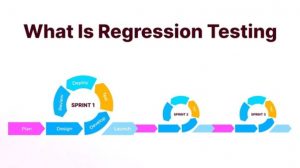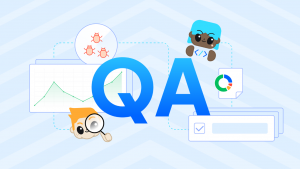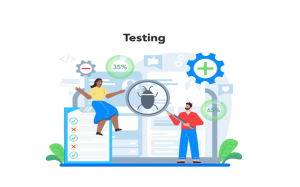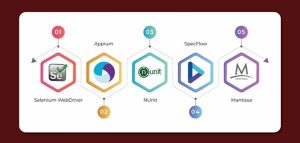

When was the last time a code update unexpectedly broke something that was already working? If you’ve been in software development or product management for a while, chances are—it wasn’t that long ago. This is precisely where regression testing steps in as the quiet protector of your project’s stability. And when you’re scaling products or deploying frequently, you need the best regression testing solutions that not only prevent such mishaps but also integrate smoothly into your continuous delivery pipeline.
In this guide, we’ll explore why regression testing is vital, what features you should look for in a modern solution, and a breakdown of the top regression testing services that can scale with your team.

Regression Testing in a Brief
Simply put, regression testing ensures that new code changes don’t negatively impact the existing functionalities of your application. Whether it’s a new feature, a security patch, or an API integration, regression tests run through your previously tested features to confirm everything still works as expected.
Now imagine this in a CI/CD (Continuous Integration/Continuous Delivery) environment, where you’re pushing out code updates daily—or even hourly. Without a reliable regression testing process, you’re increasing the chances of unexpected bugs slipping into production.
Why Scalable Regression Testing Should Be the Backbone of Your QA Strategy
As your product evolves, so do the risks. Each new feature, bug fix, or integration has the potential to break something that was previously working. And if your team is deploying code frequently—or scaling fast across platforms, devices, or regions—these risks compound quickly. This is where scalable regression testing proves its worth. It’s not just another line item on your QA checklist. It’s a critical safety mechanism that ensures your application remains stable and reliable, even as it grows in complexity. Let’s explore the core reasons why regression testing deserves a central place in your software delivery pipeline:
In this agile and DevOps-driven world, time is of the essence. Release cycles are shorter, and deployment frequencies are higher than ever. Manual regression testing, no matter how thorough, simply can’t keep up. You need automated solutions that can run across environments quickly, validate every core function, and deliver results in real-time—so you can deploy confidently and without delays.
With every new update, your application’s codebase grows. And with that growth comes the increased risk of inadvertently breaking older, stable features. Scalable regression testing ensures that you’re not just testing what’s new, but also safeguarding what already works. Whether it’s a checkout flow, login system, or data sync function—regression testing makes sure that foundational elements continue to perform as expected.
One of the biggest advantages of automated regression testing is consistency. Manual testing is susceptible to oversight, fatigue, and variance in execution. Automated tests, on the other hand, are repeatable and precise. They run the same way every time, which means fewer bugs slipping through the cracks—and more reliable results for your team to act on.
Routine testing tasks can be a massive time sink for QA professionals. Scalable regression testing tools handle the repetitive work, freeing your QA team to focus on high-value areas like exploratory testing, usability assessments, and edge-case scenarios. The result is A smarter, more productive QA process that drives better quality throughout the product lifecycle.
But here’s the thing, not every regression testing solution offers the same level of performance or flexibility. Choosing the wrong regression testing tool can leave you with flaky tests, long execution times, or poor integration with your CI/CD environment. Some tools lack scalability; others don’t support the level of automation your team needs. That’s why it’s essential to evaluate your options carefully. So, what exactly should you look for in a regression testing solution built for speed, scale, and success? Keep reading—we’re breaking that down next.

Features to Look for in a Regression Testing Services
Before diving into specific tools and services, here are some key features that distinguish a good regression testing solution from a great one:
Automation Support
The more you can automate your regression testing, the better. Look for tools that support automated test case creation, execution, and result analysis.
CI/CD Integration
Your testing solution should plug seamlessly into CI/CD tools like Jenkins, GitLab CI, Azure DevOps, or CircleCI.
Test Coverage Visualization
A good tool provides insight into what parts of the app are being tested—and more importantly, what’s not being tested.
Reporting and Analytics
Detailed test reports and failure logs help QA and devloper teams identify and fix issues faster.
AI and Smart Test Selection
Modern tools use AI to prioritize and recommend test cases based on risk areas—great for scaling efficiently.

Best Regression Testing Solutions for Modern Teams
Let’s break down the top regression testing services and tools that are designed to scale with your QA needs and support seamless continuous delivery.
1.Testim by Tricentis
It stands out as a powerful regression testing solution that leverages AI to build stable, self-healing automated tests. Designed with agile and DevOps teams in mind, Testim seamlessly integrates into modern CI/CD pipelines, making it a perfect fit for fast-paced development environments. Its low-code capabilities allow for rapid test creation, while the intuitive visual editor makes test management accessible—even for non-developers. One of its biggest strengths is AI-driven test maintenance, which significantly reduces the time spent updating tests after UI or code changes. With support for parallel test execution, teams can run comprehensive test suites quickly without slowing down deployments.
Selenium combined with TestNG or JUnit is a classic open-source regression testing stack that continues to be a favourite among developers for its flexibility and robustness. As one of the most widely adopted testing frameworks, Selenium is supported by a vast global community and boasts a rich ecosystem of plugins and integrations. It’s highly customizable, allowing teams to modify their test automation framework to fit specific project needs. It also integrates smoothly with all major CI/CD tools, ensuring seamless inclusion in modern development pipelines. Supporting multiple programming languages such as Java, Python, and C#, this stack offers maximum flexibility for engineering teams.

It revolutionizes regression testing by offering a no-code platform that empowers non-engineers—like product managers, designers, and startup founders—to create, run, and manage automated tests without writing a single line of code. Its intuitive test editor makes test creation quick and accessible, while its crowd-sourced manual testing feature allows teams to supplement automation with real human insights when needed. With the ability to execute tests in parallel and view real-time results, Rainforest helps teams catch bugs faster and release with greater confidence. This solution is especially valuable for startups and product teams that may not have dedicated QA engineers but still want to maintain high-quality standards and fast release cycles.
How to Choose the Right One for You
Still unsure? Ask yourself:
The right regression testing solution depends on your team’s structure, technical capability, and the complexity of your product.
Real Talk: Don’t Treat Testing as an Afterthought
It’s easy to prioritize new feature testing when you’re under pressure, but skipping regression testing can lead to serious issues down the line. Think of it as ignoring foundational cracks while renovating—it won’t hold up for long. Investing in a scalable regression testing solution isn’t just about preventing bugs—it’s about building trust, maintaining velocity, and delivering consistent quality to your users.

Final Thoughts
Whether you’re a startup racing to release or an enterprise expanding across multiple platforms, regression testing is your safety net—protecting your application from unexpected failures and preserving the quality your users expect. The tools and services mentioned above offer a powerful mix of flexibility, automation, and actionable insights to help you build smarter and deliver faster. Among them, BriskWinIT Solutions stands out as a trusted provider of regression testing services, offering personalized solutions that align with your development cycle and business goals. With a focus on scalability, speed, and precision, BriskWinIT helps teams confidently release updates without compromising product stability.
Frequently Asked Questions (FAQ)
1.What is regression testing, and why is it important?
Regression testing ensures that new code changes don’t disrupt existing features of an application. It’s essential because even small updates can unintentionally break previously working functionality. This testing acts as a safeguard to maintain product stability during frequent releases.
Regression testing should be carried out:
Regular regression testing helps detect issues early and maintain quality over time.
Manual regression testing involves human testers running test cases step-by-step, which can be time-consuming and error-prone.
Automated regression testing, on the other hand, uses tools and scripts to execute tests automatically, making it faster, more consistent, and scalable—especially in CI/CD environments.
Absolutely! Even small teams or startups benefit greatly from regression testing—especially when they rely on fast release cycles. Services like BriskWinIT Solutions and tools like Rainforest QA offer scalable, budget-friendly options tailored for smaller teams with limited in-house QA resources.
Consider the following:
Teams with coding experience may prefer tools like Selenium, while non-technical teams may find no-code platforms like Rainforest QA more suitable. BriskWinIT Solutions also offers consultation and service-based approaches personalized to your requirements.
CI/CD integration means your regression tests automatically run as part of your build and deployment pipelines. This allows for quick feedback on code quality, reduces risk, and ensures that no feature or fix breaks existing functionality before reaching production.
AI enhances regression testing by:
Tools like Testim by Tricentis and Applitools use AI to streamline test maintenance and increase reliability.
Yes, BriskWinIT Solutions offers custom regression testing services personalized to your project’s tech stack, workflows, and deployment schedule. We focus on delivering scalable solutions that fit your business model.
Your Turn:
What regression testing tools have worked for your team? Are you more of a Selenium fan or a no-code advocate? Drop your thoughts in the comments or reach out if you’d like help choosing the right QA stack for your business.